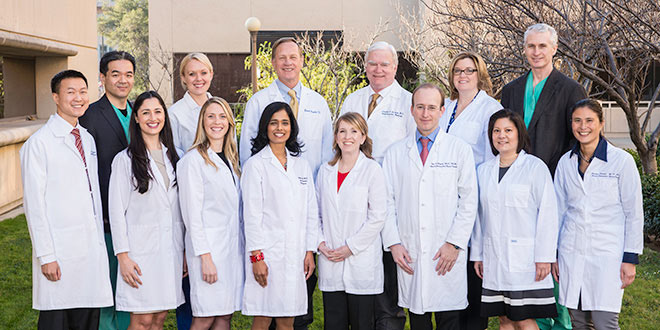Lucile Packard Children’s Hospital Stanford Earns Accreditation from the Adult Congenital Heart Association
For Release: October 5, 2017
 PALO ALTO, Calif.— In recognition of its expertise in serving adults with congenital heart disease (CHD), Lucile Packard Children’s Hospital Stanford’s and Stanford Medicine Health Care’s joint program has received accreditation as an ACHD Comprehensive Care Center from the Adult Congenital Heart Association (ACHA), a nationwide organization focused on connecting patients, family members, and health care providers to form a community of support and network of experts with knowledge of congenital heart disease CHD.
PALO ALTO, Calif.— In recognition of its expertise in serving adults with congenital heart disease (CHD), Lucile Packard Children’s Hospital Stanford’s and Stanford Medicine Health Care’s joint program has received accreditation as an ACHD Comprehensive Care Center from the Adult Congenital Heart Association (ACHA), a nationwide organization focused on connecting patients, family members, and health care providers to form a community of support and network of experts with knowledge of congenital heart disease CHD.
Individuals with CHD, the most common birth defect diagnosed in one in 100 births, are living longer. There are now 1.4 million adults in the U.S. living with one of the many different types of congenital heart defects that range among simple, moderate, and complex.
“At Stanford we are passionate about ensuring high-quality patient-centered care for our adult congenital heart patients,” said Susan Fernandes, program director of the Adult Congenital Heart Program at Stanford. “The ACHA ACHD accreditation not only acknowledges our efforts but pushes us and ACHD programs across the country to pursue the ultimate goal of exceptional care that results in an excellent quality of life and normal life expectancy.”
The program is a Lucile Packard Children’s Hospital Stanford and Stanford Medicine Health Care collaboration, which provides a unique approach to care with a team of clinicians and cardiothoracic surgeons who specialize in caring for adolescents and adults with congenital heart disease. The program received accreditation by meeting ACHA’s criteria, which include comprehensive medical services, patient resources, personnel requirements, and going through a rigorous accreditation process, both of which were developed over a number of years through a collaboration with doctors, physician assistants, nurse practitioners, nurses, and ACHD patients.
“There are now more adults than children in the U.S. with CHD,” said Mark Roeder, president and CEO of ACHA. “Accreditation will elevate the standard of care and have a positive impact on the futures of those living with this disease. Coordination of care is key, and this accreditation program will make care more streamlined for ACHD patients, improving their quality of life.”
Authors
Samantha Dorman
(650) 498-7056
sdorman@stanfordchildrens.org
About the Adult Congenital Heart Association
The Adult Congenital Heart Association (ACHA) is a national not-for-profit organization dedicated to improving the quality of life and extending the lives of adults with congenital heart disease (CHD). ACHA serves and supports the more than one million adults with CHD, their families and the medical community—working with them to address the unmet needs of the long-term survivors of congenital heart defects through education, outreach, advocacy, and promotion of ACHD research. For more information about ACHA, contact (888) 921-ACHA or visit www.achaheart.org.
###
The ACHA ACHD Accreditation Program was partially funded by Actelion Pharmaceuticals U.S., Inc. ACHA and Actelion Pharmaceuticals have partnered together since 2007 to support the CHD community.
About Stanford Medicine Children's Health
Stanford Medicine Children’s Health, with Lucile Packard Children’s Hospital Stanford at its center, is the Bay Area’s largest health care system exclusively dedicated to children and expectant mothers. Our network of care includes more than 65 locations across Northern California and more than 85 locations in the U.S. Western region. Along with Stanford Health Care and the Stanford School of Medicine, we are part of Stanford Medicine, an ecosystem harnessing the potential of biomedicine through collaborative research, education, and clinical care to improve health outcomes around the world. We are a nonprofit organization committed to supporting the community through meaningful outreach programs and services and providing necessary medical care to families, regardless of their ability to pay. Discover more at stanfordchildrens.org.
Connect with us:
Download our App: